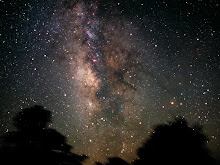A great deal of ego is invested in hoping to prove who can go to the Moon. Yet in fact, billions of people have no desire to go to the Moon in the foreseeable future, and no desire to spend the money to send anybody else either.
Knowledge of the nature of the Moon was a figurative goal for all Earth from long before the time of King Tut. The Moon haunted prehistoric human beings, and possibly earlier precursors of Man as well. Ever since the first use of flaked stone tools and weapons, ever since the atlatl hurled a spear point farther than any man could with his bare hand, people have dreamed of throwing it to the Moon.
That knowledge was slowly emerging in the time of ancient Greece and Rome, rapidly increased with the discovery of optics four hundred years ago, and finally attained with certainty during the Apollo manned project and by several unmanned instrumented missions as well. The information returned within the last fifty years includes actual samples of the Moon's surface rocks, and specimens were distributed to every nation on Earth.
Physical objects-corner reflecting mirrors-were left on the Moon so that they could be used with lasers to determine the exact distance to that point on the surface of the Moon. Those reflectors will be useful for centuries, perhaps thousands of years, as positive evidence of human artifacts on the Moon.
The information returned by the missions confirmed the best of the thought from ancient civilization, and as well, the visual understanding gathered by telescopes since the 16th century. The Moon is KNOWN, baby, and you don't want to waste your stuff on it.
Fiction in theater and literature about Moon Men and other living organisms was never proved out, yet it created a sinister, gloomy and haunting concern that the Moon might be found to harbor some kind of concealed life - a concern that even now drives some to propose immediately returning to the Moon to find the desired creature. Relax. There is no air. no water, no life, no farmland, no oceans, no seas, no space aliens, and no people on the Moon. It's only rock, dust and vacuum, sterilized every two week day by so lethal heat and radiation from the Sun and chilled beyond dry ice in the long night - conditions that were survived only with special protective equipment, for only a few days by the astronauts, before they had to return to safety.
Nobody wants to go to the Moon that badly yet. It's not impossible. It's just a frightfully, tyrannically costly, expensive and wasteful thing to do now. Later, like, say, 2400 A.D. It is not worth the money yet. Someday enough substantial questions will arise which are retained for when Moon missions are worth affording. Until then, we stand to gain much more by dedicating the knowledge and organization to solving the problems which plague mankind and the Earth as well - war, disease, crime, reckless reproduction, loss of habitat, defoliation, and many other problems remain which are a result of errors that were made thousands of years ago and had cumulative effect since then.
Returning to the Moon should wait until the whole cost of the journey can be afforded by the top of the market, as an amusing luxury, rather than dragged by tooth and claw out of helpless indigenous and poor human beings at the cost of frantic, clumsy exploitation of the planet's natural resources.
Subscribe to:
Post Comments (Atom)







No comments:
Post a Comment